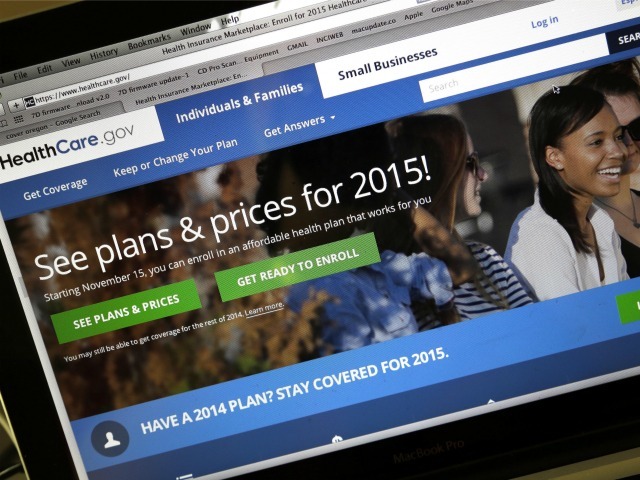From its inception, the Affordable Care Act (ACA)—popularly called Obamacare— has been touted as the necessary fix for the nation’s health care system needed prior to its passage.
Yes, it’s going to cost nearly $2 trillion over the next decade that the nation doesn’t have. Yes, it’s going to radically transform the entire health care marketplace and lead to significant cost increases for families and taxpayers. But no matter what the costs, the Obama administration told us, Obamacare is necessary because there were roughly 49 million Americans without health insurance in 2010, and something had to be done about it.
Although the U.S. Department of Health and Human Services estimates between 9 and 10 million people have enrolled through health care exchanges so far in 2015, President Barack Obama still refuses to release or is unable to calculate the number of people who did not have health insurance prior to the passage of the ACA who are now covered.
For all the praises heaped on Obama for his signature program’s alleged success, no one outside of a select few in Washington, D.C. has any clue whether the ACA is actually helping large numbers of impoverished Americans.
Although hard data is not available to the public–which is odd if Obamacare really is the wild success so many of its proponents claim–new clues released by the Treasury Department suggest the ACA has been a massive failure at helping the poor attain health insurance.
According to a top federal tax official, 36 million Americans failed to purchase health insurance in 2014. Interestingly, an estimated 30 million of those people qualified for a penalty exemption under the ACA despite not having a qualified health insurance plan.
According to healthcare.gov, the primary exemptions for avoiding the Obamacare tax penalty are incarceration, living abroad for particular lengths of time, membership in a federally recognized Native American tribe, select religious affiliations, if the lowest-priced coverage available through the exchange would cost more than 8 percent of household income, membership in a health care sharing ministry, and financial hardship.
By examining data we do have about those groups and comparing it to the number of people the Treasury Department says will be eligible for an exemption, it’s easy to see that impoverished citizens are deliberately choosing not to sign up for Obamacare even though the primary purpose of the law was to help this very demographic.
Data shows there are about 6 million incarcerated Americans, about 1 million Native Americans living on tribal lands, and likely less than 1 million who would qualify for religious exemptions, assuming the largest groups are the Amish and Mennonites. If we add another 4 million people to the total to account for Americans living abroad, a figure that gives Obama the benefit of the doubt, there are roughly 18 million Americans remaining who can’t afford Obamacare, believe the cost to be too prohibitive, or are members of a health care sharing ministry because the insurance offered is more affordable.
No matter how the Obama administration wants to spin it, there are more than 15 million Americans—far more than the number who actually enrolled through an exchange—who have decided against Obamacare despite qualifying for some sort of financial exemption.
If Obamacare, with all of its costs, regulations, and mandates, is necessary to help the tens of millions of Americans who did not have health insurance prior to the passage of the ACA, why have so many people who are poor enough to qualify for an Obamacare tax exemption found the exchanges to be anything but affordable?
[Originally published on Breitbart.com]





